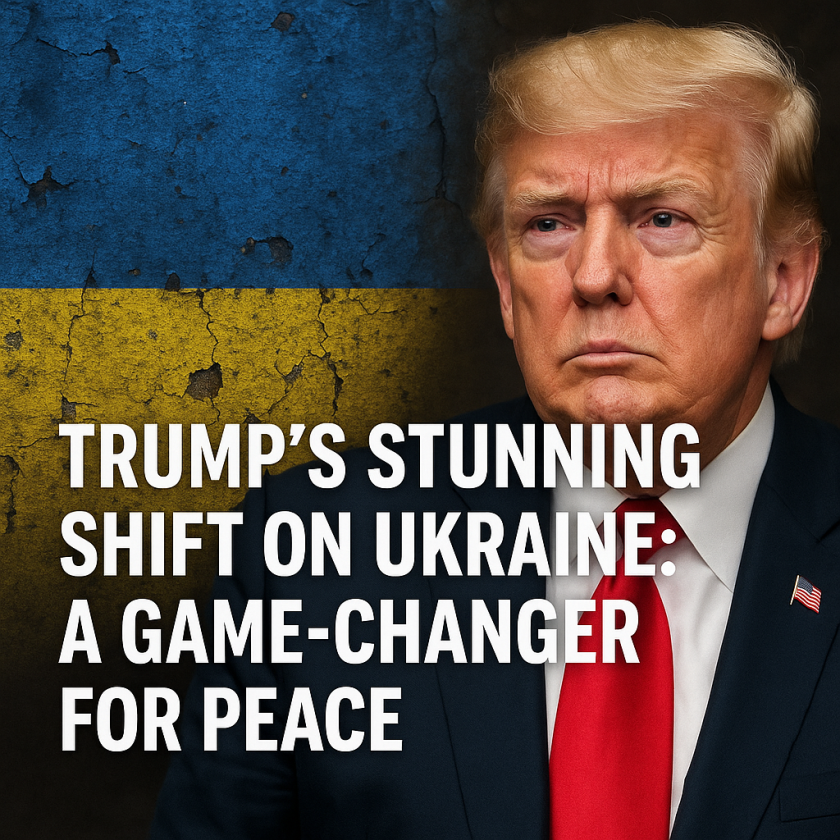Trump’s Stunning Shift on Ukraine: A Game-Changer for Peace
Trump’s Stunning Shift on Ukraine: A Game-Changer for Peace?
Trump’s recent remarks regarding Ukraine mark a notable shift in his foreign policy stance, capturing attention both for its implications and its timing. With ongoing conflicts and complex international dynamics, understanding this pivot is crucial for evaluating future peace prospects and U.S. involvement in the region.
A Shift in Tone: What’s New?

Former President Donald Trump’s recent signals indicate a softer approach to the Ukraine conflict, emphasizing negotiations and peace talks over military support. According to reports from Al Jazeera, Trump suggested a potential for resolving the war through diplomatic means, stating, “This is a time for negotiations, not escalation.” This statement diverges from the prevailing U.S. policy that has largely supported Ukraine militarily against Russian aggression.
However, this shift has garnered mixed reactions. Critics argue that it undermines U.S. commitments to its allies and may embolden Russia, while supporters believe it reflects a necessary move to prioritize diplomacy. This dichotomy is evident in various media portrayals, where Trump is viewed both as a possible peacemaker and as a political opportunist leveraging public sentiment for a potential 2024 campaign.
Different Perspectives on Trump’s Approach
1. Supporters of Diplomatic Engagement:
– Advocates argue that Trump’s proposal for peace talks aligns with a growing sentiment among some segments of the American public who are fatigued by long-standing military engagements. They urge that focusing on negotiations can prevent further escalation and potentially foster a more stable relationship between the U.S., Ukraine, and Russia.
2. Critics of the Shift:
– Conversely, opponents express concern that Trump’s rhetoric might lead to a reduction in support for Ukraine, risking further territorial losses to Russia. Some analysts argue that embracing a negotiation-first strategy could inadvertently convey weakness, emboldening Moscow’s ambitions. This perspective raised alarms within the international community, especially among NATO allies who fear a ripple effect of diminished U.S. support.
Evaluating the Stakes of Negotiation
The complexities surrounding the Ukraine conflict cannot be understated. The stakes are high—not only for the regions involved but for global stability as well. As the war grinds on, the human cost mounts, with civilians bearing the brunt of the violence. In this context, Trump’s pivot towards peace negotiations may symbolize a cry for change rather than mere political calculation.
However, the actual efficacy of negotiations must be considered. Historical precedents illustrate that diplomatic efforts can yield positive results, but they often require a unified approach from international stakeholders. The question thus arises: Can Trump’s renewed openness to negotiations bring about substantial changes?
The Path Ahead: Challenges and Opportunities
Moving forward, there are significant challenges that will shape the outcome of this newly posited approach. First and foremost, the political landscape in the U.S. is uniquely polarized. Any shift in policy will likely meet both staunch support and fierce opposition, complicating the practical implementation of diplomatic strategies.
Additionally, the international response is crucial. European allies, particularly those bordering Russia, may react cautiously, weighing the risks of any perceived concessions to Putin. As observed in coverage from RT News, the implications of any peace process must be assessed against the backdrop of ongoing battlefield realities and the desires of Ukrainian sovereignty.
Conclusion: A Complicated Future
While Trump’s indications of a shift in policy towards Ukraine introduce an intriguing possibility for peace, the complexity of the situation begs a careful, nuanced approach. The blend of advocacy for diplomacy juxtaposed against concerns of potential fallout elucidates the intricacies involved in navigating foreign policy.
With divided opinion both domestically and internationally, any transformation in U.S. engagement regarding Ukraine will necessitate broad discussions and careful consideration of the historical context. While Trump’s newly articulated stance may represent a potential game-changer, the path to peace remains fraught with uncertainty and challenges that will require collective courage and commitment from all involved parties.




































